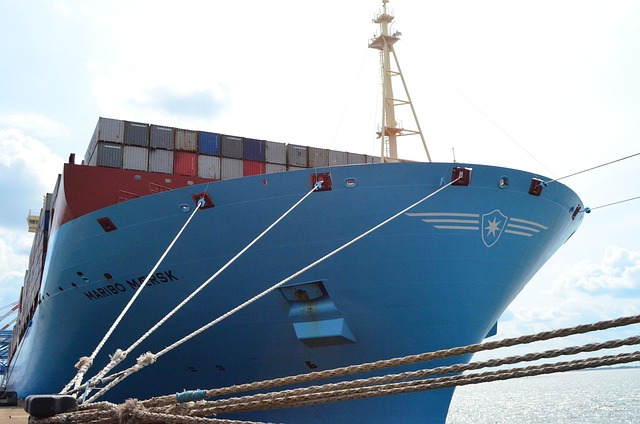Refrigerated shipping containers have transformed perishable goods transportation by maintaining precise temperatures, reducing spoilage, and enhancing food safety. Equipped with advanced technology like temperature sensors and energy-efficient components, these ISO-compliant units meet the stringent requirements of the food and pharmaceutical industries. Their integration into intermodal shipping networks, standardized dimensions, and flexible rental/leasing options make them a valuable solution for global fresh produce distribution, optimizing costs and cutting lead times in the shipping container industry. Case studies demonstrate their effectiveness in improving product quality and minimizing waste.
Refrigerated shipping containers are revolutionizing the logistics industry by preserving perishable goods at precise temperatures, ensuring quality and safety during transit. This modern solution addresses the critical challenges faced in food supply chains, where maintaining optimal conditions is paramount. In this article, we explore how these innovative containers utilize cutting-edge technology to maintain cold chain integrity, highlighting their numerous benefits and showcasing successful case studies that underscore their transformative impact on global trade.
- Understanding Refrigerated Shipping Containers: A Modern Solution for Perishable Goods
- How These Containers Maintain Precise Temperatures: Technology and Innovation
- Benefits of Using Refrigerted Shipping Containers in the Logistics Industry
- Case Studies: Successful Implementation and Impact on Food Supply Chains
Understanding Refrigerated Shipping Containers: A Modern Solution for Perishable Goods
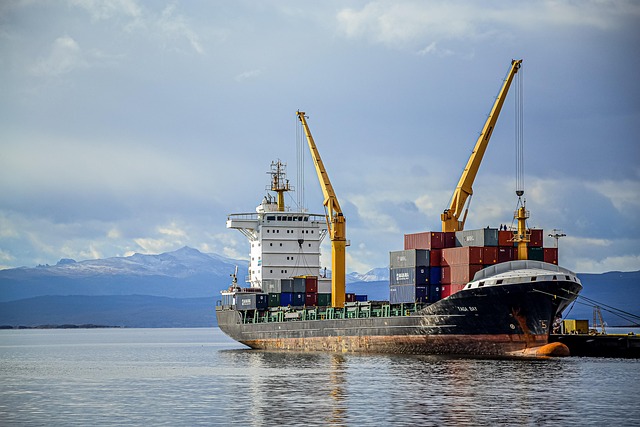
Refrigerated shipping containers have emerged as a modern solution for transporting perishable goods, ensuring they maintain precise temperatures during transit. Unlike traditional sea shipping containers, these specialized units are equipped with advanced cooling systems that can regulate internal temperatures to within a narrow range, preserving the quality and freshness of items like food, pharmaceuticals, and flowers. This technology is particularly valuable in the intermodal shipping sector, where cargo needs to be quickly transferred between different modes of transport, such as ships, trains, and trucks, without compromising integrity.
These refrigerated containers, also known as ISO shipping containers due to their standard dimensions and compliance with ISO standards, offer numerous advantages over traditional storage methods. They provide a controlled environment, minimizing the risk of spoilage and contamination, and can be easily integrated into shipping container depots and logistics networks. With options for rental or leasing, businesses in the food and pharmaceutical industries can access these essential shipping container solutions to meet their specific temperature-controlled transport needs, tapping into the robust shipping container industry trends that continue to evolve with technological advancements.
How These Containers Maintain Precise Temperatures: Technology and Innovation
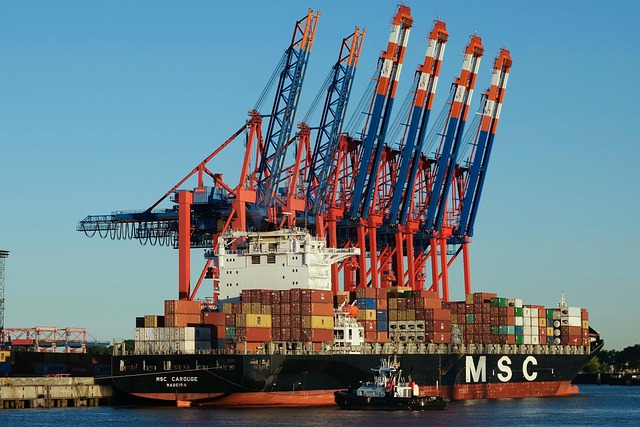
Refrigerated shipping containers maintain precise temperatures through advanced technological innovations. Equipped with state-of-the-art cooling systems, these intermodal shipping containers can regulate internal temperatures within a narrow range, ensuring the freshness and quality of perishable goods during transit. This is achieved by combining high-efficiency insulation materials with sophisticated climate control mechanisms that monitor and adjust temperature settings in real time.
The use of ISO shipping containers as refrigerated storage solutions has been further enhanced through various modifications and accessories. These include advanced temperature sensors, automated control systems, and energy-efficient components, all designed to optimize cooling performance and reduce operational costs. As a result, sea shipping containers, cargo shipping containers, and even storage shipping containers can now offer shipping container logistics that meet the stringent requirements of the food industry, catering to the global demand for fresh produce and perishable goods with reliable shipping container transport, leasing, and rental services.
Benefits of Using Refrigerted Shipping Containers in the Logistics Industry
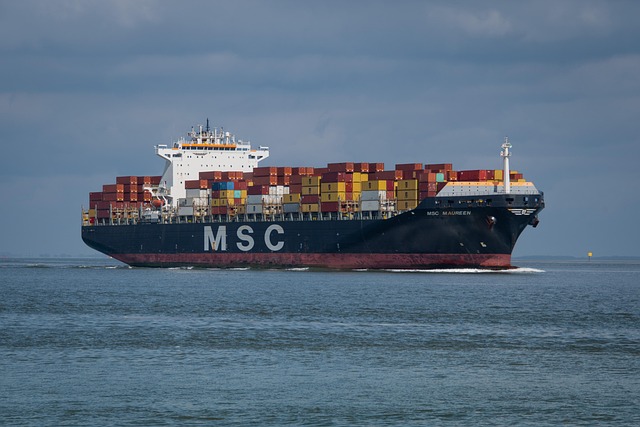
The use of refrigerated shipping containers has revolutionized the logistics industry, especially for transporting perishable goods. These specialized containers offer numerous advantages over traditional methods, making them an indispensable tool in modern supply chains. One of the key benefits is their ability to maintain precise temperature control, ensuring that delicate items like food, pharmaceuticals, and flowers remain fresh during transit. This level of precision significantly reduces waste and spoilage, which has a positive impact on both businesses and consumers.
Additionally, refrigerated shipping containers contribute to efficient and flexible intermodal shipping, allowing for seamless transitions between sea shipping containers, cargo shipping containers, and land-based transport. Their standardized dimensions, as defined by ISO shipping container specifications, facilitate easy storage and stacking at shipping container depots and terminals, streamlining the entire logistics process. With options for shipping container rental or leasing, businesses can scale their operations according to demand, optimizing costs and reducing lead times in the shipping container industry.
Case Studies: Successful Implementation and Impact on Food Supply Chains
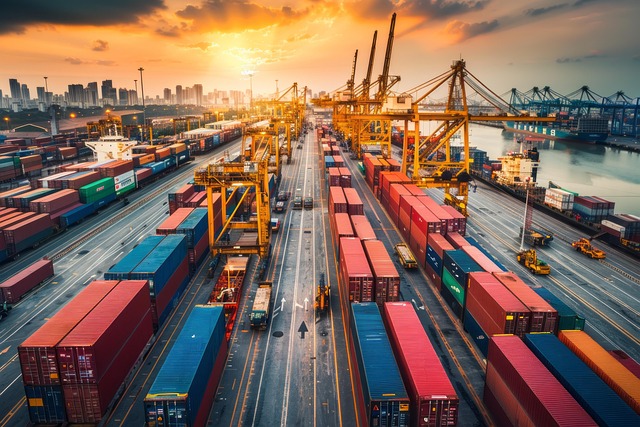
The successful implementation of refrigerated shipping containers has significantly transformed food supply chains globally. Case studies highlight their impact in various regions, demonstrating improved product quality and reduced waste. For instance, a leading fruit exporter in North America utilized ISO shipping containers equipped with advanced temperature control systems to transport delicate produce over long distances. This strategy not only extended the shelf life of their products but also enhanced their competitive edge in the market.
In another notable example, a food processing company in Europe adopted sea shipping containers for storing and transporting perishable goods between continents. By leveraging shipping container logistics and integrating specialized accessories like temperature sensors and insulation materials, they ensured consistent product quality throughout the supply chain. This approach not only cut down on spoilage but also streamlined their operations, leading to increased efficiency and cost savings in the shipping container industry.
Refrigerated shipping containers are transforming the logistics industry by providing a sustainable and efficient solution for transporting perishable goods. With their advanced technology, these containers maintain precise temperatures, ensuring product quality and safety. The benefits are clear: reduced waste, improved supply chain visibility, and cost savings. As demonstrated in various case studies, refrigerated containers have positively impacted food supply chains worldwide, offering a promising path toward a more sustainable future for global trade.
